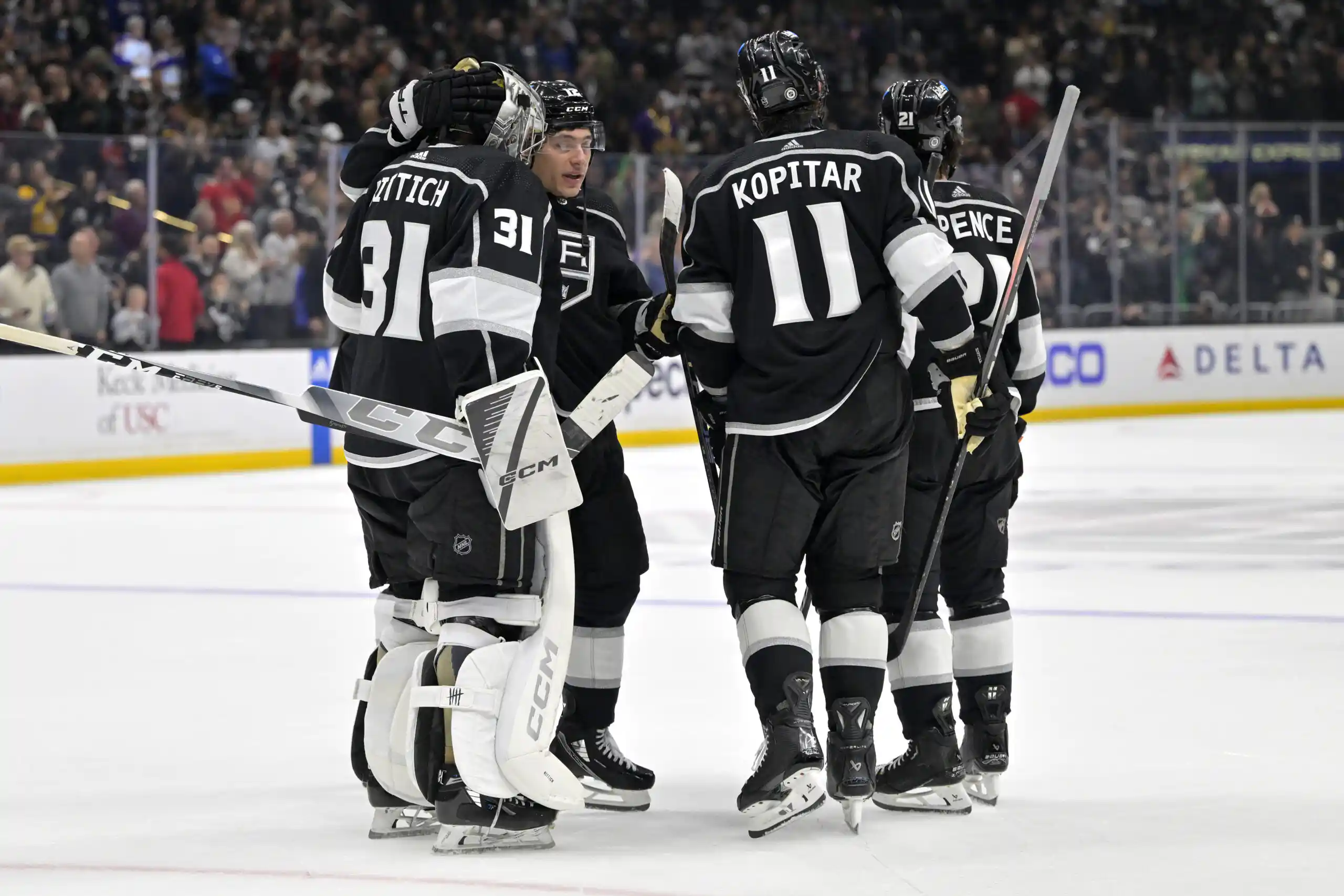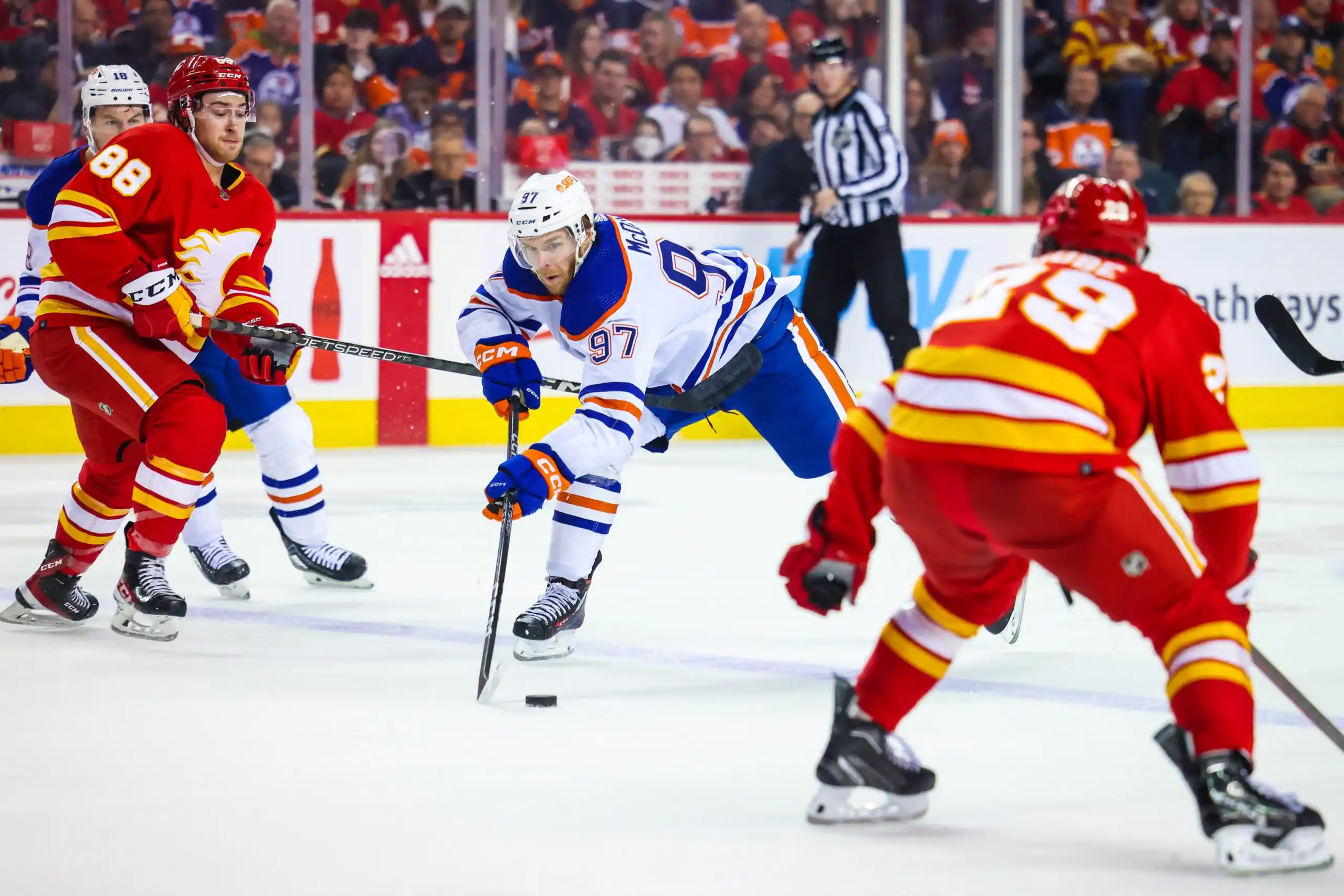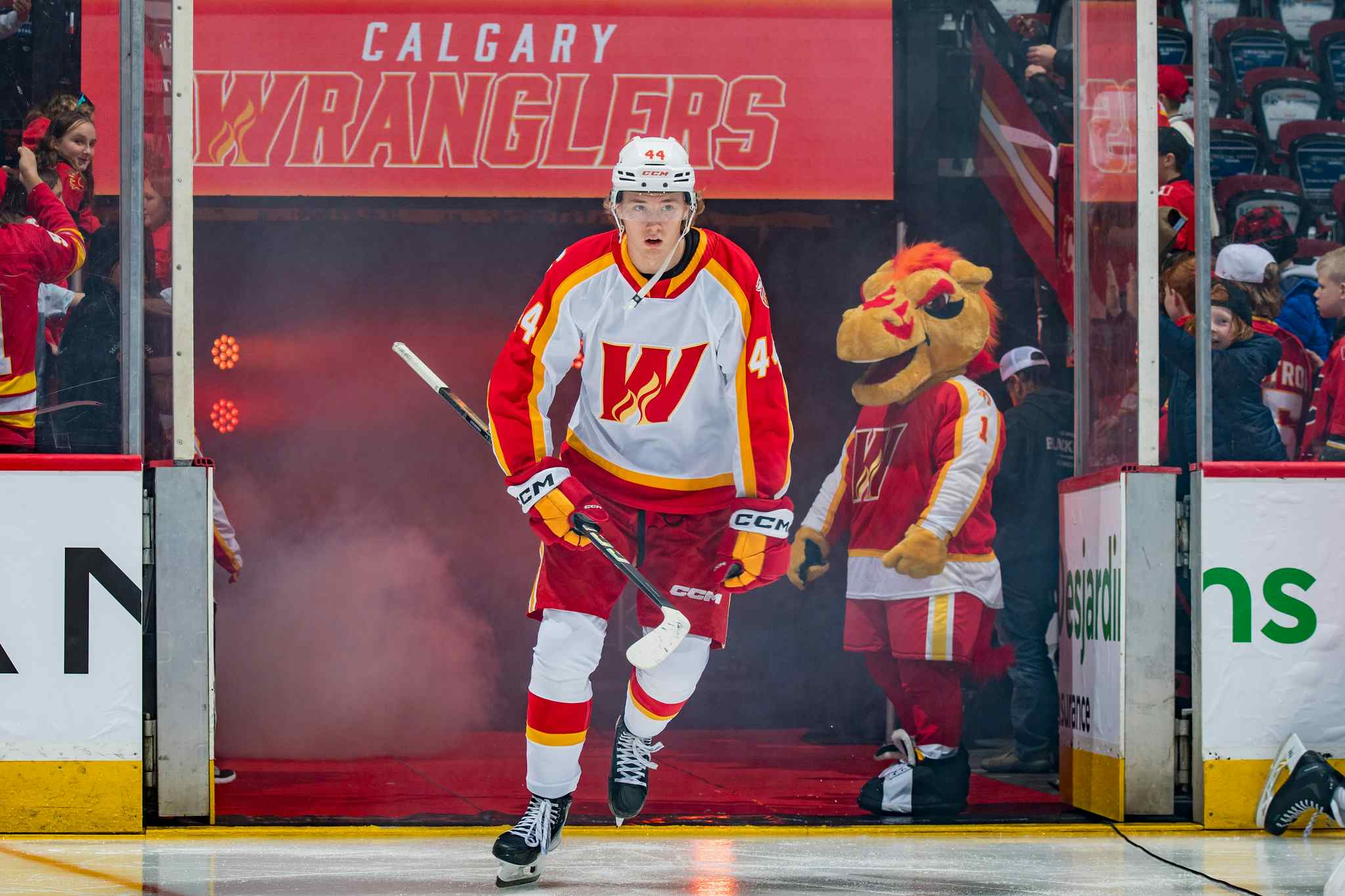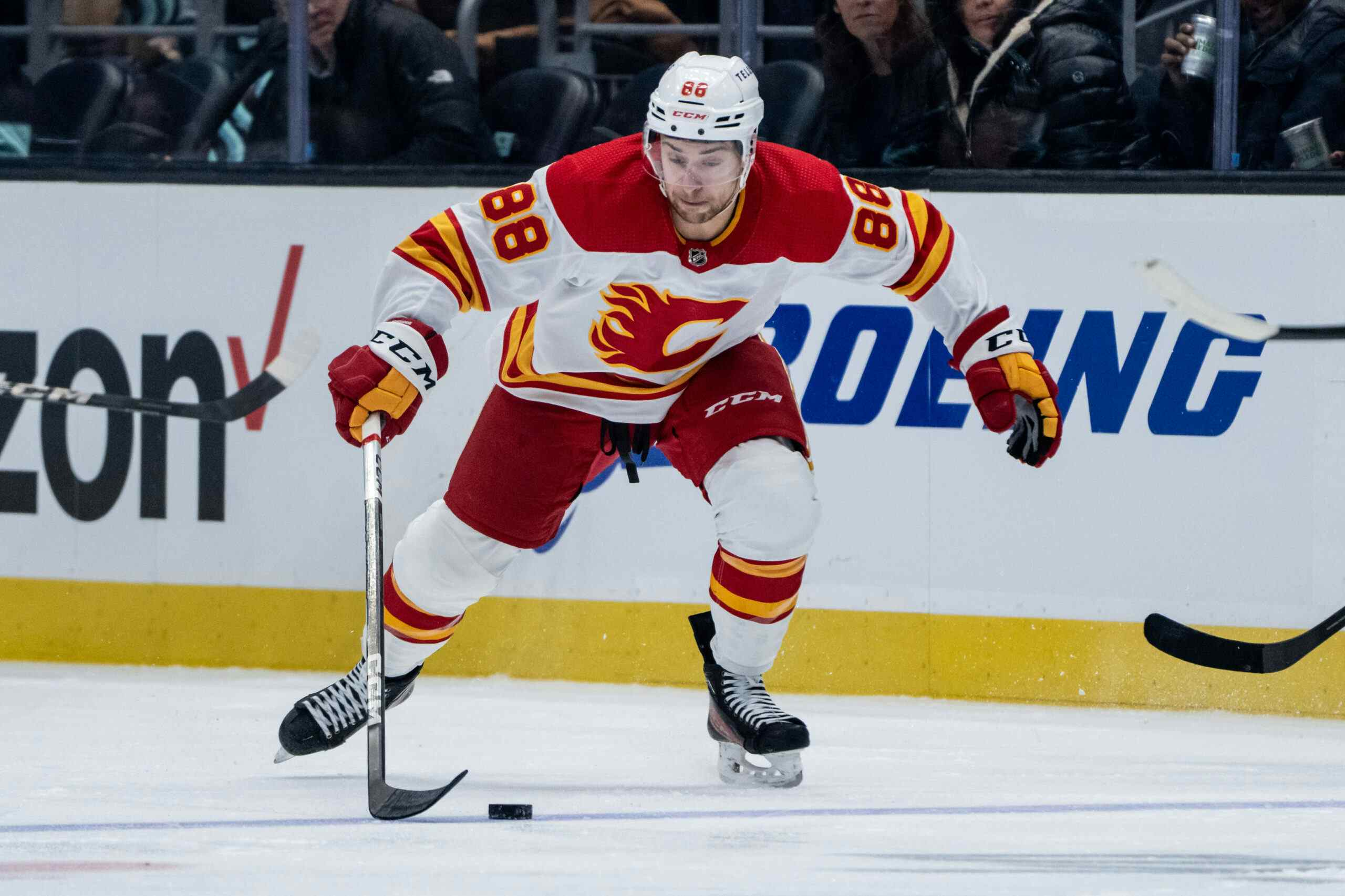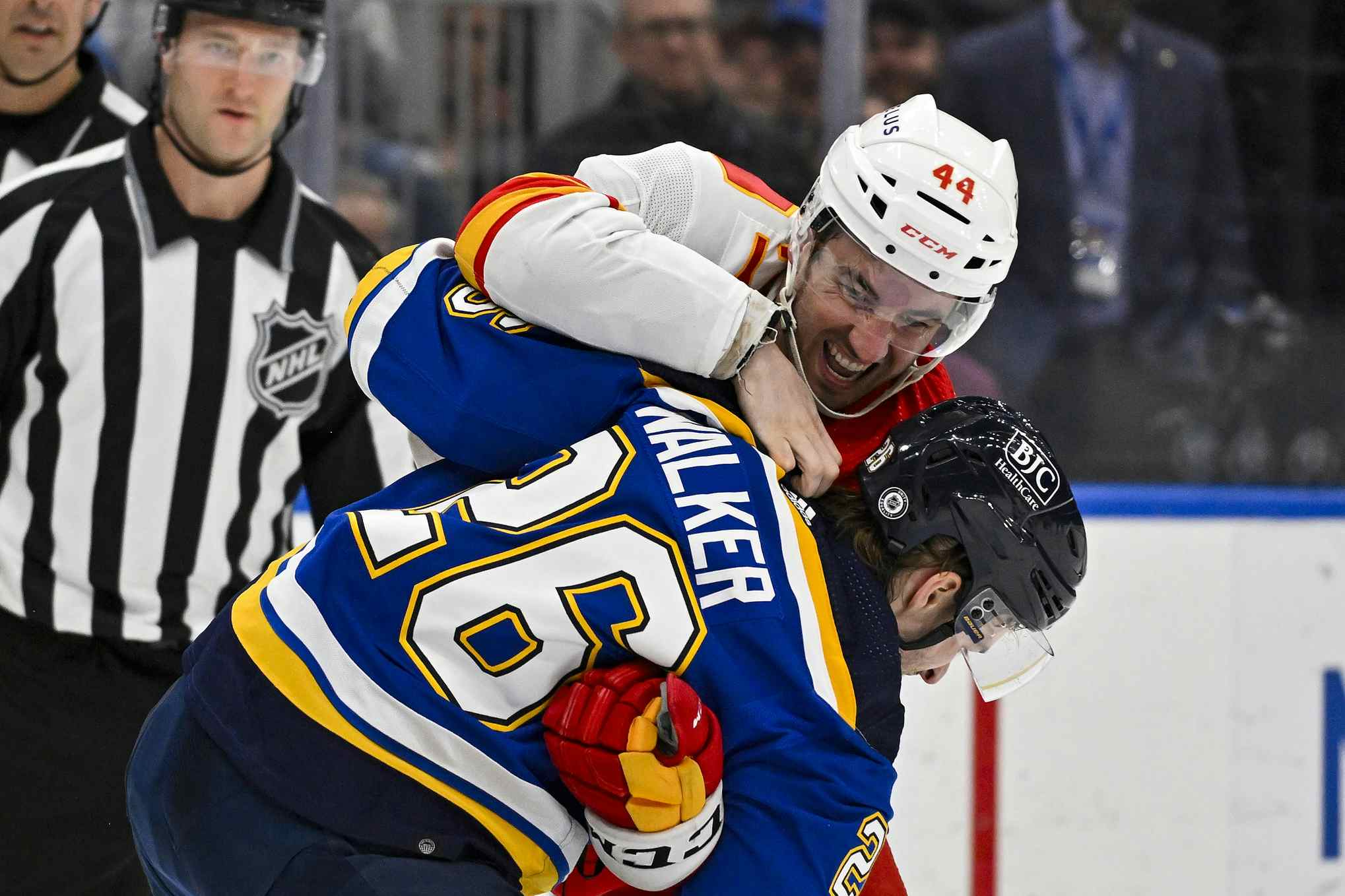Losing Langkow: Unfortunate but Understandable
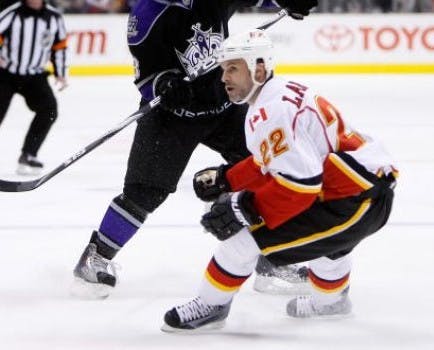
Seeing the Calgary Flames deal Daymond Langkow to Phoenix in exchange for Lee Stempniak left me with a very similar feeling to Calgary’s deal with Buffalo at the draft in Minnesota. While it sucks to see Langkow leave, I can understand the rationale behind moving a 35 year old forward who has played next to no hockey over the last year. He may still be a very effective player, but it’s tough to see how Langkow fits into the longterm plans of the Flames.
I asked myself a few questions to help get my head around the deal, and I’ll present them for you now. I just don’t agree with Ryan Lambert’s "rudderless ship" analogy to this team, as I see it to be the total opposite. Whether or not the direction ends up being a good one, I do see Jay Feaster et al shaping the team to resemble the one they want down the road.
Does Daymond Langkow fit into Calgary’s longterm plans?
Honestly, how can he? The Flames have missed the playoffs for two consecutive years and they need to start moving in a new direction. Langkow is 35 years old, and regardless of his effectiveness, the team needs to start developing younger players and giving them the opportunity to play more significant roles on the team. With that said, it just wouldn’t have made sense to bring Langkow back beyond this season, as his contract expires on July 1st, 2012. Regardless of this trade happening or now, I don’t think we’d have seen Langkow back for the 2012-13 season.
Who has more potential longterm? Langkow or Stempniak?
That’s another easy answer. Stempniak is seven years younger than the player he’s being swapped for, meaning there’s a chance he could earn a new contract with the Flames. Lee’s contract expires at the end of this season as well, and there’s no guarantee he’ll be re-signed; in a lot of ways it’s up to him. But there’s no question a 28 year old fits into a longterm vision a whole lot better than a 35 year old.
Were the Flames dealing from a position of strength?
Absolutely. With Olli Jokinen, Mikael Backlund, Matt Stajan, Brendan Morrison, and potentially David Moss, Calgary has a glut of players down the middle. On top of that, as discussed earlier in our Yay! Optimism! series, the Flames have impressive forward depth. I fully understand there are few, if any, forwards on the team who can play the type of minutes Langkow has (I stress, has) played in the past. They do, however, have a number of forwards who are in the same range and thus any one loss is a little easier to replace.
Is this season the be all and end all?
Hell no. I don’t view it that way, and I don’t believe the Flames do either. Langkow’s loss could very possibly see the team take a step back in their competitive level, the same way the loss of Regehr could do the same thing. But this team isn’t just about this season, and by saving some room on their immediate cap ($2.6 million to be exact) the Flames accomplish two things. First, it gives them room to make a deal later on to help boost their chances, if it ends up they’re in a spot to compete for a real playoff spot. Second, it gives them flexibiilty if they wanted to aquire a player who does fit into their longterm plan, with a contract that carries beyond this season; having the free cap space makes that a whole lot easier.
What player will Langkow be?
There’s no guarantee Langkow, who has played four games since March 2010, will be anywhere near the player he was during the 2009-10 season. There’s no doubting he was one of Calgary’s top forwards that year, consistently put in the toughest defensive situations against difficult opposition. But missing that much time, and being two years older, it’s difficult to say for sure he’ll be as effective as he was. I know Langkow played four games at the end of the season, and was very good in that time; but four games is not 82, and having him on your team at that salary is a risk, regardless.
In the end, it sucks to see Langkow go, because I firmly believe he’s still a very good hockey player. I also firmly believed Daymond would be an interesting case study this coming season, and could be a real help to the Flames maybe being competitive for a playoff spot. But this team needs to undergo change, and dealing a guy who likely wasn’t going to be with the team beyond this year is not the tragedy if could be; if this deal was made two or three seasons ago, it’s a different story. The fact is, Jay Feaster made this deal on August 29th, 2011, and I don’t have a huge problem with it.
Recent articles from Pat Steinberg

